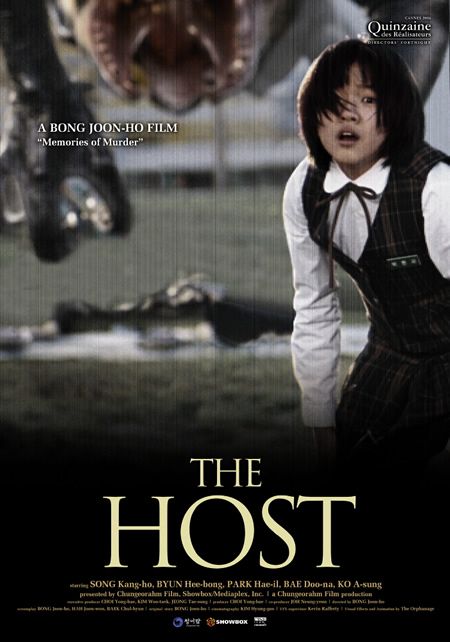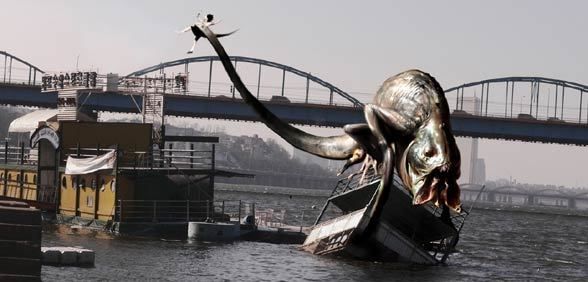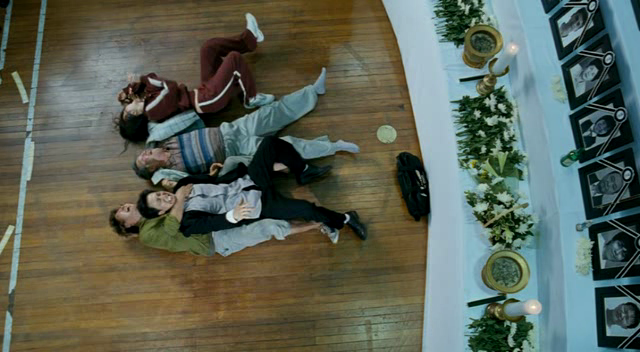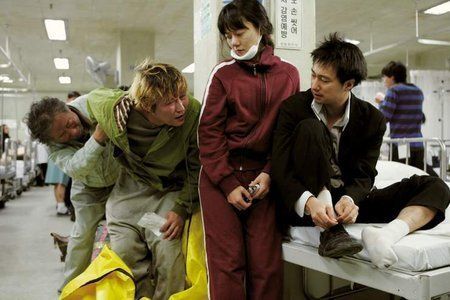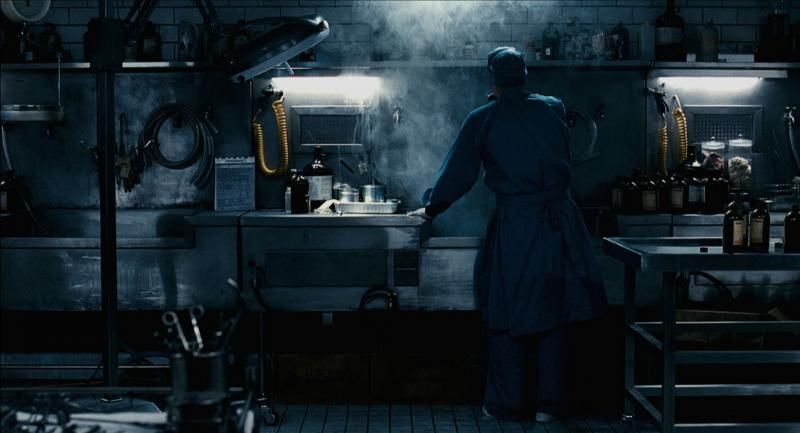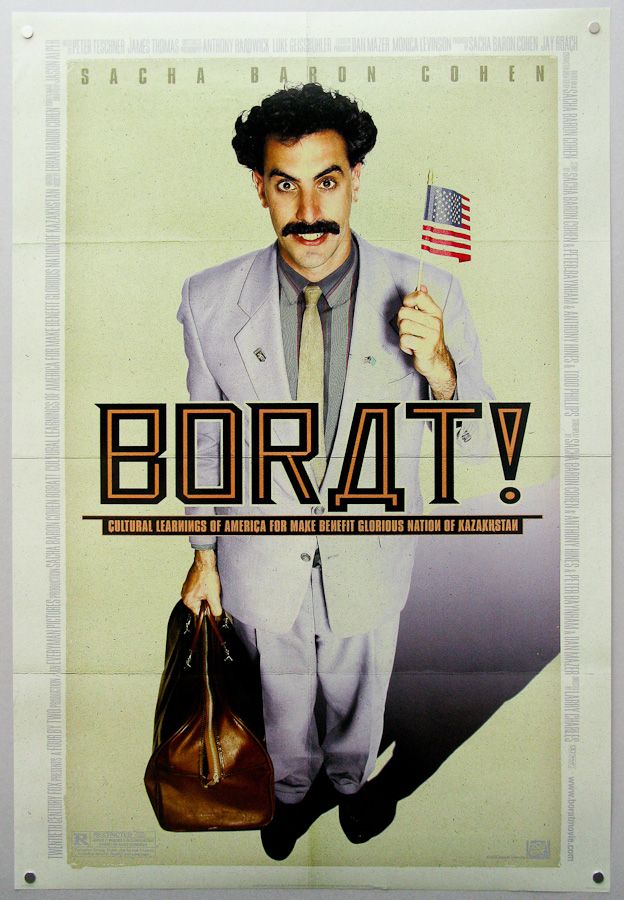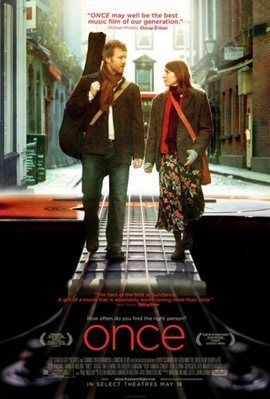Babel
2006
Director: Alejandro Gonzalez Innaritu
Starring: Cate Blanchett, Brad Pitt,
Adriana Barraza, Rinko Kikuchi
My
husband rarely watches my 1001 Movies flicks with me. He’s not a movie buff the way I am, and I
would never want to force him to watch, say, an intense Swedish film – like
Bergman – unless, for some reason, he really wanted to. Which normally, he doesn’t. But he wound up watching Babel with me, almost on
accident, in that he was playing a video game in the same room and wound up
getting pulled into the film, watching the last hour with the video game on
pause. Do not let this be a comment on Babel
amazing quality, however, as when it was over, we turned to look at one another
and vocalized our almost identical reactions.
“That
could have been so much better.”
Waving
the ride of the concept of telling multiple interconnected stories, Babel’s
interconnected stories are in Morocco, California and Mexico, and Tokyo. An American couple (Blanchett and Pitt) are
vacationing in Morocco when the wife is accidentally shot on their tour
bus. The shooter is a young Moroccan boy
out tending goats with his older brother; the two were simply monkeying around
with the new rifle their father bought for killing jackals. While the young boys panic and try to hide
what they did, the husband of the stricken wife desperately searches for
medical attention in the remote farmland of a country whose language and custom
he does not know. Meanwhile, back in
California, the children of the American couple are taken to Mexico by their
live-in nanny Amelia (Barraza) because her son is getting married and she can
find no one to look after them. While
things are fine initially, problems eventually arise. And finally, in Japan, a teenage deaf-mute
Chieko (Kikuchi) is frustrated enough at the world for not understanding her
condition; her distant father and dead mother don’t make things any
easier. Chieko starts acting out in
possibly dangerous ways as we begin to understand just how angry and hurt she
really is.
The
reason I said above that this could have been so much better is because the
central themes of Babel are good ones, solid ones, even necessary ones. The very idea that we live in an age of
international connectivity is one that is vital to moving forward, and yet this
remains an idea that many people, cultures, and countries eschew. The issues Babel raises around this
theme, that of language barriers and lack of communication, are equally
profound. We are all connected to one
another, and we must embrace this as the world becomes smaller and smaller, but
we have a great deal of barriers in our way that prevent us from truly embracing
the similarities we all have. This idea
is important. Babel deals with
important and significant cultural debates.
It
just doesn’t delve into these questions nearly as well as it thinks it does.
Three
of the four central tales in Babel are all clearly linked to one
another. The American woman is shot by
kids in Morocco while the woman’s own children attend their nanny’s son’s
wedding in Mexico back home. Yes, three
stories, all with a very clear thread of connectivity. Then there’s the Tokyo story. Yes, there is a link between Chieko’s tale
and what’s happening with the other characters, but it’s flimsy at best and
feels like a big stretch, as if the writers came up with this great Tokyo
plotline but had to find a way to shoehorn it in to the other threads. Right away, this takes away from Babel’s
strength as a film, as there seems to be an oddball tale awkwardly fitted in
between the other, related plotlines. Which
is really a shame, because for my money, the Tokyo plotline was easily the most
interesting part of the film. Granted,
the type of story and characters in this chapter make me predisposed to liking
it more – few, introspective characters, internal turmoil, drama and angst, as
opposed to the distinct action/adventure/thriller aspect of the other three
tales – but even my husband admitted to finding the Tokyo story (a phrase I
cannot type without thinking Ozu) the most compelling, and he’s definitely an
action/adventure/thrilling kind of guy.
Honestly, I wish it had been its own film; Kikuchi’s Chieko is devastatingly
honest and a frightening pillar of uncontrolled strength and emotion. When she is not commanding the screen, the
film lags, as if Babel itself wishes it could have spent more time with Chieko.
Although
for my money, Kikuchi is the best of the bunch, the performances in Babel
are all stellar and were probably the biggest strength of the film. Naturally, Cate Blanchett is amazing, but
that’s rather a given. It’s easy to
understand why Adriana Bazzara earned a Best Supporting Actress Oscar
nomination, but it’s Brad Pitt and the nonprofessional Moroccan actors who
really manage to buoy the entire film.
Pitt is an actor easy to underestimate; his non-stop tabloid presence
and impossible good looks can work against him.
But here, he is very good, very strong as a man who finds himself
entirely out of his league and facing a life and death situation. Right alongside him, the actors portraying
the Moroccan family torn asunder by a rifle do a tremendous job. The two young boys underplay most of their
scenes, a fact that works best with child actors, and the Moroccan father
believably carries the role of emotional heavy in what is a gut-wrenching
tale. Innaritu must be commended for
coaxing such strong performances from every single member of such a varied
cast.
*********************************SPOILERS
FOR THE ENDING************************************
But
ultimately, I have a bit of a problem with the overall message of the film, and
this is why I say it could have been such a better movie. When considering the ending of all four
stories, I have to ponder what exactly Innaritu managed to say. Think: the Moroccan family is completely torn
apart, facing jail and possibly the death of one of its own. Their lives will never be the same
again. The Mexican maid is ungraciously
deported, forced to leave behind her entire life and not allowed even a
suitcase of her belongings. Chieko’s
emotional future is anything but certain as she pushed herself to dangerous
places. Three of the four stories have
distinctly downer endings.
But
what happens to the white people? Oh, no
worries, everyone survives and gets back home in one piece. Really, is that the message we’re going with? Everyone’s interconnected in this world of
ours, and bad stuff happens all over the place, but if you’re American,
everything will be fine? Is this some
sort of subtle commentary on white privilege by Innaritu? Although you may disagree with me on this
one, I don’t think it is. Rather, I feel
like the writers felt the need to have one story end happily and they picked
the white Americans one. I really wish
they hadn’t. It would have felt so much
stronger to have one of the stories involving a different culture, a different
set of people, end well and to have something sad happen to the Americans. But no, Babel is fundamentally an American
film, marketed and shown to American audiences, and we can’t have our American
audiences having their delicate sensibilities upset. So we’ll force all the tragedy onto the
people of color and ensure that our own get through unscathed. This wrapping up of the plotlines undercuts
the international message of the film, and thus much of the power of Babel. Again, this could have been better.
Edit
to add: After a bit of time away from this, perhaps the above is the point?
Perhaps Innaritu is actually brilliantly calling out white privilege by having
that plot line be the only one that has anywhere near a happy resolution.
Actually, I don’t believe that is the case, I don’t feel this movie is quite
that… clever, but I admit it’s a possibility.
***************************************DONE
WITH THAT THEN*******************************
Babel smacks too much of a film
specifically designed to make you feel like crap. The stories continually scream at you to “BE
SAD!!” And if that isn’t enough, all the
ancillary filmmaking techniques, such as score and cinematography, belabor the
point, yelling at you to “BE SADDER!!!!!!!!”
While a perfectly acceptable film in that there isn’t anything too
egregiously wrong with it, I was left a touch underwhelmed. This is disappointing, as the issues Babel
raises are interesting ones. Again, I
reiterate that the biggest message I got from it was wishing that Chieko’s
plotline had been developed into a standalone film, as I would rather have
watched that.
Arbitrary
Rating: 7/10.



